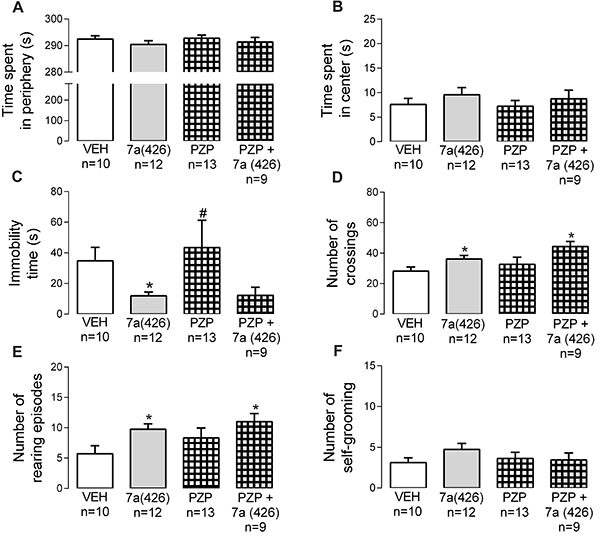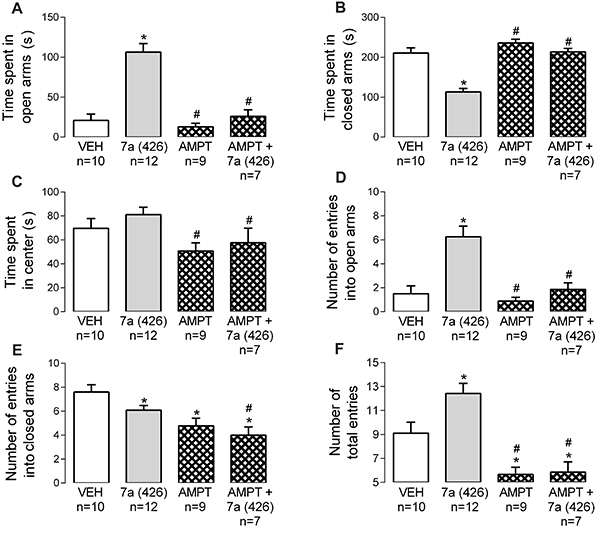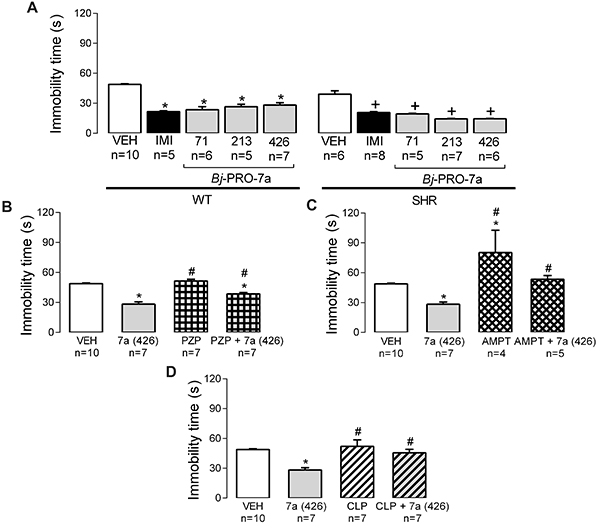The heptapeptide Bj-PRO-7a, isolated and identified from Bothrops jararaca (Bj) venom, produces antihypertensive and other cardiovascular effects that are independent on angiotensin converting enzyme inhibition, possibly relying on cholinergic muscarinic receptors subtype 1 (M1R). However, whether Bj-PRO-7a acts upon the central nervous system and modifies behavior is yet to be determined. Therefore, the aims of this study were: i) to assess the effects of acute administration of Bj-PRO-7a upon behavior; ii) to reveal mechanisms involved in the effects of Bj-PRO-7a upon locomotion/exploration, anxiety, and depression-like behaviors. For this purpose, adult male Wistar (WT, wild type) and spontaneous hypertensive rats (SHR) received intraperitoneal injections of vehicle (0.9% NaCl), diazepam (2 mg/kg), imipramine (15 mg/kg), Bj-PRO-7a (71, 213 or 426 nmol/kg), pirenzepine (852 nmol/kg), α-methyl-DL-tyrosine (200 mg/kg), or chlorpromazine (2 mg/kg), and underwent elevated plus maze, open field, and forced swimming tests. The heptapeptide promoted anxiolytic and antidepressant-like effects and increased locomotion/exploration. These effects of Bj-PRO-7a seem to be dependent on M1R activation and dopaminergic receptors and rely on catecholaminergic pathways.
Bj-PRO-7a; Snake venom; Neuroactive compounds; Anxiety; Depression; Behavior

 Thumbnail
Thumbnail
 Thumbnail
Thumbnail
 Thumbnail
Thumbnail
 Thumbnail
Thumbnail
 Thumbnail
Thumbnail
 Thumbnail
Thumbnail
 Thumbnail
Thumbnail
 Thumbnail
Thumbnail
 Thumbnail
Thumbnail








